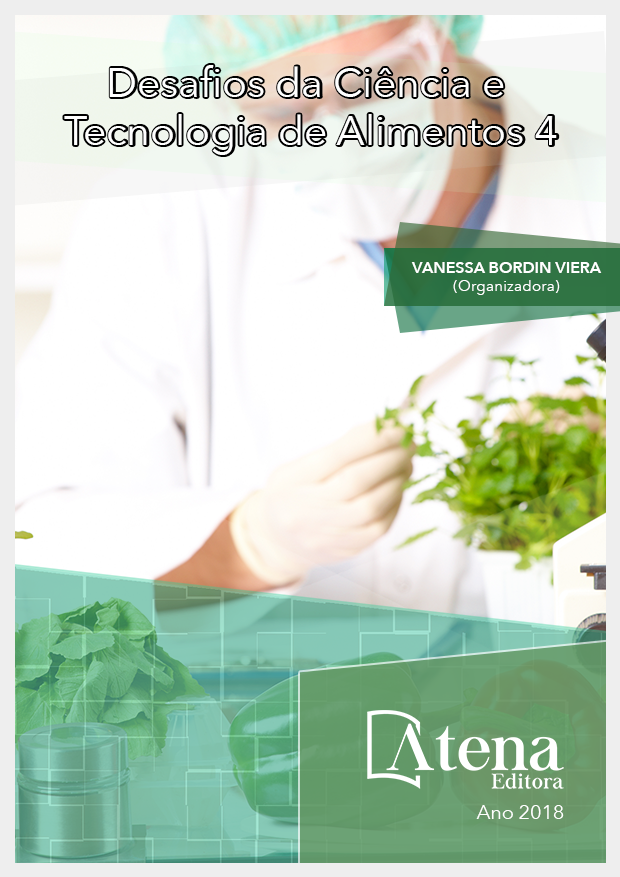
AVALIAÇÃO DA ROTULAGEM DE BEBIDAS NÃO ALCOÓLICAS COMERCIALIZADAS EM SUPERMERCADOS
A embalagem tem a função de
proteger o alimento e também informa os
consumidores sobre a origem, a composição
e as características nutricionais dos produtos,
permitindo a rastreabilidade dos mesmos. Essas
informações devem ser claras e objetivas, não
podem induzir o consumidor ao equívoco em
relação à verdadeira natureza, composição e
qualidade do alimento, tornando-se elementos
fundamentais para a saúde pública. Nesse
contexto, este trabalho teve como objetivo
avaliar as conformidades e não conformidades
dos rótulos de bebidas não alcoólicas de acordo
com a legislação vigente. Foram verificados os
rótulos de 28 bebidas não alcoólicas divididos
em quatro categorias (refrigerante, bebidas à
base de soja, néctar e água coco) de diferentes
marcas, em quatro supermercados do município
de Codó-MA. Os resultados revelaram que, dos
rótulos analisados, 28,6% apresentaram no
mínimo um tipo de não conformidade frente à
legislação. Os maiores problemas foram com
relação aos itens: lista de ingredientes, modo
de conservação após aberta a embalagem,
existência de figuras, símbolos, ilustrações e/
ou desenhos que possam levar o consumidor
a erro ou engano, e se o número do SAC
na embalagem da bebida dá origem a uma
ligação gratuita. No total, 8 das 28 embalagens
avaliadas estavam em desacordo com as
normas. É necessário tornar comum a aplicação
rigorosa da legislação durante fiscalização, e
que o consumidor procure conhecer as normas
regulamentares para rotulagem de alimentos e
bebidas, para que ele próprio possa fiscalizar e
cobrar que o produto tenha informações claras
e adequadas.
AVALIAÇÃO DA ROTULAGEM DE BEBIDAS NÃO ALCOÓLICAS COMERCIALIZADAS EM SUPERMERCADOS
-
DOI: Atena
-
Palavras-chave: Bebidas não alcoólicas, Rotulagem, Legislação.
-
Keywords: Labeling; Non-alcoholic beverages; Legislation.
-
Abstract:
The packaging has the function
of protecting the food and also informs the
consumers about the origin, the composition
and the nutritional characteristics of the
products, allowing the traceability thereof.
Such information must be clear and objective
and must not mislead the consumer as to the
true nature, composition and quality of the food and become essential elements for
public health. In this context, this work had as objective to evaluate the conformities
and nonconformities of the non alcoholic beverage labels according to the current
legislation. The labels of 28 non-alcoholic beverages divided into four categories
(soft drinks, soya-based drinks, nectar and coconut water) of different brands were
checked in four supermarkets in the municipality of Codó-MA. The results showed that
of the labels analyzed, 28.6% presented at least one type of non-compliance with the
legislation. The biggest problems were related to the items: list of ingredients, storage
mode after opening the packaging, existence of figures, symbols, illustrations and / or
drawings that could lead the consumer to error or mistake, a free call. In total, 8 of the 28
packages evaluated were in disagreement with the standards, especially the coconut
water labels, which had the highest rates of irregularities. It is necessary to make the
strict enforcement of legislation common during inspection and for the consumer to
seek to know the regulatory standards for food and drink labeling so that he himself can
supervise and charge that the product has clear and adequate information.
-
Número de páginas: 15
- Cecília Teresa Muniz Pereira


